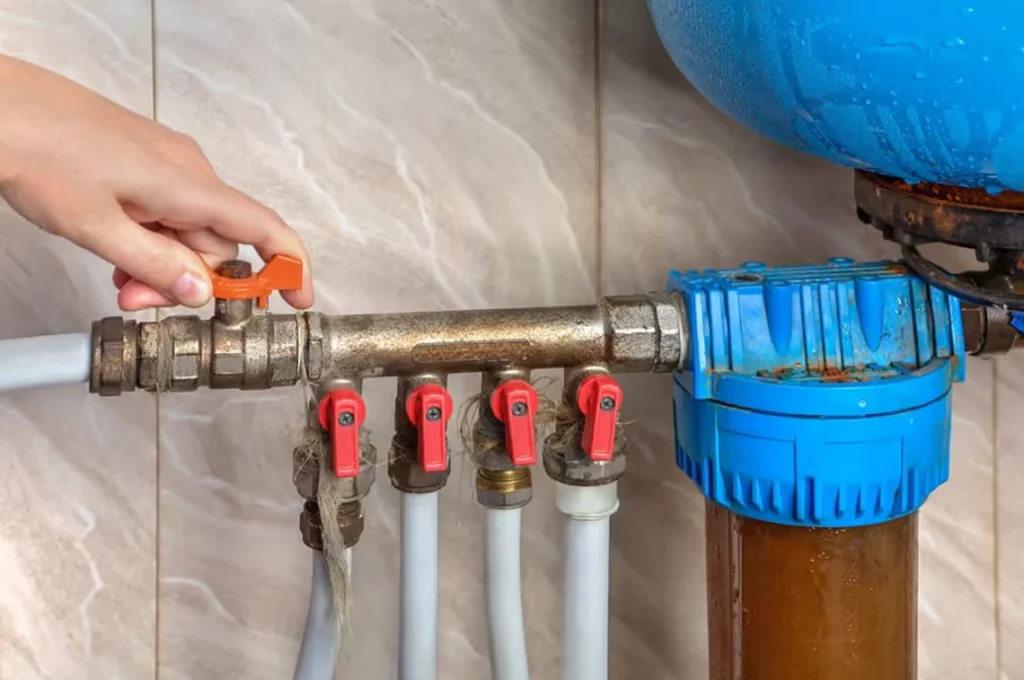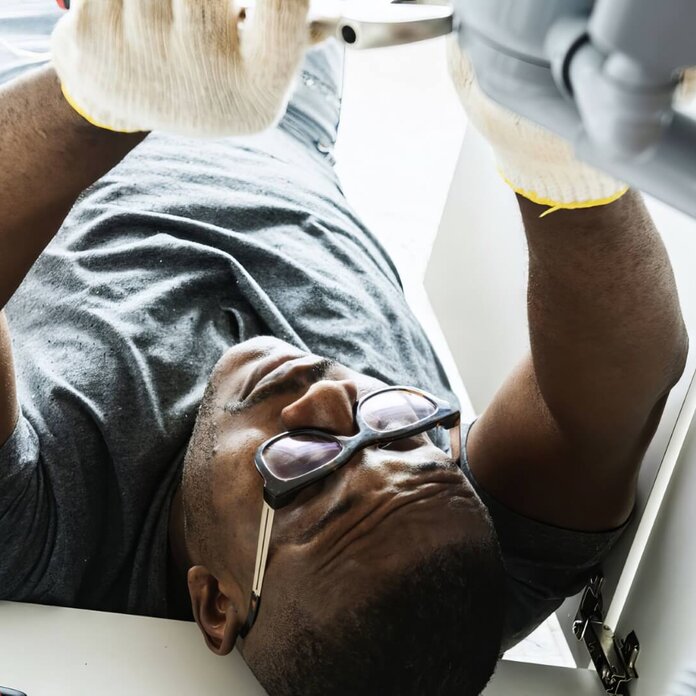Emergency Plumbing Fixes: What to Do Until Help Arrives
Emergency Plumbing Fixes: What to Do Until Help Arrives
Blog Article
In this article below you will find a good deal of amazing insights related to Plumbing Emergencies: Tips on What To Do Before.

Plumbing emergencies can strike at any time, creating anxiety and prospective damage to your home. Whether it's a burst pipe, a clogged up drainpipe, or a leaking faucet, knowing how to take care of the circumstance up until an expert plumbing arrives can conserve you from further complications. This write-up supplies vital emergency pipes ideas to assist you reduce damages and gain back control during a plumbing situation.
Shut off the Supply Of Water
The first step in any kind of pipes emergency is to shut off the water system. For localized issues, such as a dripping faucet or toilet, switch off the valve near the fixture. When it comes to a major leakage or ruptured pipe, situate your home's primary water shut-off valve and transform it off right away. Knowing the place of these valves ahead of time can save beneficial time during an emergency.
Address Little Leaks with Short-lived Repairs
Tiny leakages can quickly come to be significant troubles if left unattended. Use these momentary fixes up until specialist help gets here:
While these solutions aren't permanent, they can help lessen water loss and damages.
Unclog Drains Safely
A stopped up drainpipe can be a frustrating and messy problem. Right here's just how to tackle it:
If these methods don't work, stay clear of making use of too much pressure, as it might intensify the obstruction.
Manage Overflowing Toilets
An overflowing toilet can create prompt turmoil. Right here's what you ought to do:
Turn off Your Hot Water Heater
In specific emergencies, such as a burst pipe, it's wise to shut down your hot water heater. This stops overheating or damage to the unit when water quits moving. Shut off the power supply to the hot water heater (electrical or gas) and allow it cool to prevent prospective hazards.
Temporarily Quit a Burst Pipe
A burst pipe can result in significant water damages in minutes. To mitigate the issue:
Call a specialist plumbing professional quickly to attend to the issue permanently.
Handle Frozen Piping Thoroughly
In colder climates, frozen pipelines are a typical emergency. If you suspect an icy pipe:
Avoid Further Damage
Taking fast activity to reduce damages can conserve you time and money over time. Below's how:
. Have an Emergency Pipes Kit
Prepare a fundamental pipes emergency package to handle small concerns effectively. Your set needs to include:
Having these tools available can make a substantial distinction in your ability to handle emergency situations.
Know When to Call an Expert.
While quick fixes can assist momentarily, certain plumbing problems need prompt professional attention. Call a plumber if:.
Promptly getting in touch with an expert makes sure the problem is solved appropriately and protects against more problems.
Verdict.
Pipes emergency situations can be overwhelming, yet with the appropriate knowledge and tools, you can manage the situation effectively until help arrives. By turning off the water supply, addressing tiny leakages, and making use of momentary repairs, you can lessen damages and keep your home safe. Keep in mind, these suggestions are short-term services; always consult a qualified plumbing professional to manage the source of the issue. Preparation and quick reasoning are your finest allies in any type of plumbing emergency.
8 Helpful Tips for Managing Plumbing Emergencies at Home
If your plumbing system hasn’t failed once, wait for it because almost everyone has a story to tell. Sometimes, it could be simple emergencies such as a leaking pipe, a blocked cistern, or even a big burst pipe. In situations like this, you need to have some handy tips to save you some money and from possible damages.
Take care of minor issues early.
Sometimes, you could have avoided an emergency by taking proactive measures while it was still early. Some major plumbing emergencies can be a result of an ignored minor issue. We recommend that you have items like plumbing tapes and other related items. A plumbing tape can allow you to manage minor leaks before the plumber arrives.
Cut off the water supply.
This tip is essential in almost any type of leakage problem. For problems like minor leakages in the toilet or kitchen, turn off the supply that takes water to the affected pipes. If the leakage is a major pipe, you must shut off the supply valve to the entire building. This will help you avoid flooding your home and neighbors if you share a flat.
Know your plumbing system
Folks typically move into a new apartment without understanding the water supply around the building. This can prove disastrous if a water emergency arises and the plumber is far away. The previous tip will prove useless if you don’t practice this one. More importantly, know where your water shut-off valve is located – you’ll need that knowledge to prevent potential home floods.
Have some common handy tools
There are lots of plumbing emergencies that you can handle without hiring a plumber. That’s why you must keep some tools available always. Some tools that you can use to fix simple plumbing emergencies easily include plumbing tapes, screwdrivers, thread seal tapes, plungers, pliers, tape measures, and rubber gloves.
Insulate your pipes from cold
You’ll save yourself from many plumbing expenses if you protect your water pipes from the cold. This is because of the harmful effects that cold weather can have on your pipes. During winter, your pipes can burst from being overly expected to freezing temperatures. So, make sure insulators are there to keep the pipes working correctly.
Avoid practices that will clog your toilet.
Many people indulge in practices that can damage the plumbing system of the entire building. One of these is when they use their toilet to dispose-off garbage. They flush all kinds of things, such as paper towels, bandages, hairs, female sanitary products, etc., down the toilet. This will block your toilet in the long run, incurring unnecessary expenditures. Dump such waste in the trash instead.
Check your dials regularly.
Sometimes, there could be leakages in your home without noticing them in time. So, constantly monitor your water meter dial. If the dial is reading when there is nobody using water, this is an indicator that there is leaking. Check for leaks immediately. Call a plumber as soon as possible if you can’t find any.
https://www.constructionplacements.com/8-helpful-tips-for-managing-plumbing-emergencies-at-home/

We had been shown that article on What to Do During a Plumbing Emergency through a friend on our other web property. Be sure to pause to promote this blog post if you appreciated it. We appreciate reading our article about What to Do While Waiting for an Emergency Plumber.
Call Today Report this page